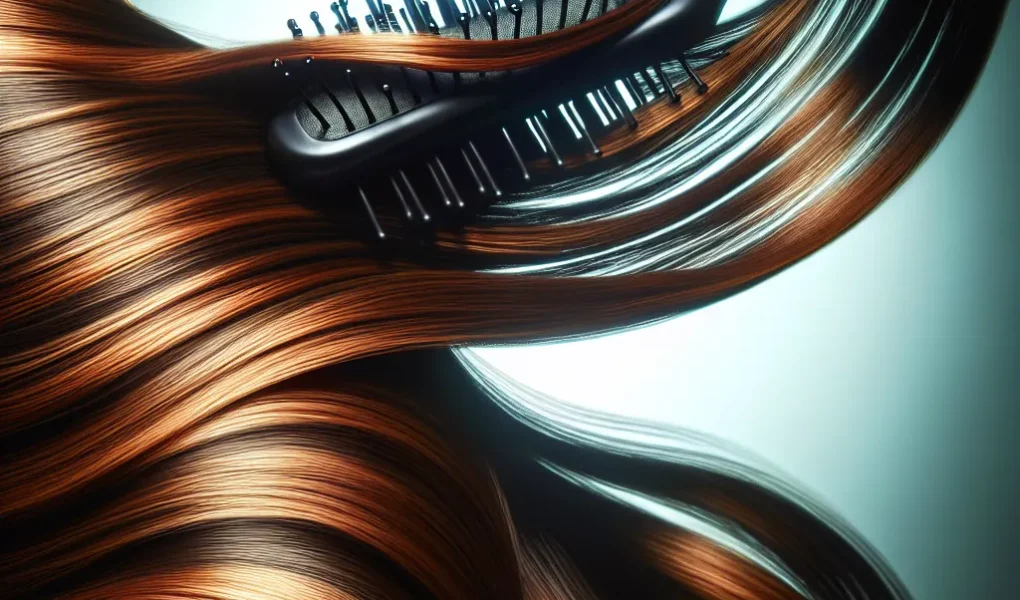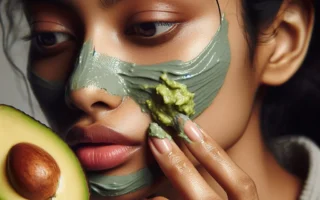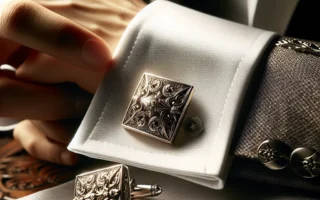5 Essential Beauty Tips for Strong and Silky Hair
Having strong and silky hair is a desire for many, and achieving it requires proper care and attention. Here are 5 essential beauty tips for maintaining strong and silky hair.
1. Regular Trimming: Regular trims are crucial for keeping hair strong and healthy, as they prevent split ends and breakage. Trimming every 6-8 weeks can help maintain the hair’s integrity.
2. Gentle Detangling: Use a wide-tooth comb or a detangling brush to gently remove knots and tangles. Starting from the ends and working your way up can minimize breakage and damage.
3. Nourishing Hair Masks: Treat your hair to nourishing masks, such as coconut oil or argan oil masks, to provide deep conditioning and promote strength and silkiness.
4. Choosing the Right Products: Opt for shampoos and conditioners specifically formulated for your hair type. Look for ingredients like keratin, biotin, and vitamins that promote hair strength and shine.
5. Heat Protection: When using heat styling tools, always use a heat protectant spray to shield your hair from damage. Excessive heat can weaken the hair and lead to dryness and frizz.
By incorporating these essential beauty tips into your hair care routine, you can maintain strong, silky, and healthy hair that turns heads wherever you go.
The Best Nutrients for Healthy Hair
When it comes to maintaining healthy and beautiful hair, it’s essential to nourish it from the inside out. The best nutrients for healthy hair play a crucial role in promoting strong, shiny, and luscious locks. Incorporating the right blend of vitamins and minerals into your diet can significantly improve the overall condition of your hair.
First and foremost, protein is a key nutrient for healthy hair. Hair is primarily made of a protein called keratin, so consuming an adequate amount of protein-rich foods such as eggs, fish, and lean meats is vital for promoting hair growth and strength.
Additionally, Omega-3 fatty acids, found in foods like salmon, walnuts, and flaxseeds, are essential for maintaining a hydrated scalp and promoting hair elasticity. These healthy fats also help reduce dryness and scalp inflammation, which can contribute to stronger, healthier hair.
Vitamins A and C are also crucial for healthy hair. Vitamin A helps produce sebum, a natural scalp conditioner, while vitamin C aids in collagen production, which is necessary for hair structure and strength. Include carrots, sweet potatoes, citrus fruits, and leafy greens in your diet to ensure an adequate intake of these vitamins.
Last but not least, biotin and niacin, part of the B-vitamin family, are essential for promoting hair growth and preventing hair thinning. Foods like eggs, nuts, and whole grains are rich sources of these nutrients, contributing to the overall health and thickness of your hair.
In conclusion, a well-balanced diet rich in protein, Omega-3 fatty acids, vitamins A and C, and B-vitamins is key to maintaining healthy and beautiful hair. By incorporating these essential nutrients into your daily meals, you can support your hair’s natural growth and resilience, ensuring that it looks and feels its best.
Hair Care Routine for Lustrous Locks
Having a consistent hair care routine is essential for maintaining lustrous locks. To achieve healthy and beautiful hair, follow these 5 beauty tips for a hair care routine that will leave your hair looking and feeling its best.
1. Regular Washing: Use a gentle shampoo and conditioner to wash your hair regularly. It is important to choose products that suit your hair type and address any specific concerns, such as dryness, oiliness, or damage. Avoid washing your hair with hot water as it can strip away natural oils, leaving your hair dry and brittle.
2. Conditioning: Conditioning is vital for maintaining smooth and manageable hair. Apply a nourishing hair mask or deep conditioner once a week to provide extra hydration and repair any damage. Focus on the lengths and ends of your hair, where the most damage typically occurs.
3. Proper Drying Techniques: After washing your hair, avoid vigorous towel-drying and opt for a gentle patting motion to remove excess water. Additionally, using a wide-tooth comb to detangle wet hair can prevent breakage and reduce damage. If using heat styling tools, apply a heat protectant spray to minimize the risk of heat damage.
4. Regular Trimming: Scheduling regular hair trims every 6-8 weeks can prevent split ends and breakage, promoting healthier and more lustrous hair growth. Trimming also helps maintain the shape and style of your hair, keeping it looking fresh and vibrant.
5. Scalp Care: A healthy scalp is essential for promoting strong and beautiful hair. Incorporate scalp treatments or massages into your hair care routine to stimulate blood flow and encourage healthy hair growth. Additionally, using a clarifying shampoo once a month can help remove product buildup and maintain a clean and healthy scalp.
By incorporating these hair care tips into your routine, you can achieve lustrous locks that exude health and vitality.
Avoiding Common Hair Mistakes
When it comes to maintaining healthy and beautiful hair, it’s important to avoid common hair mistakes that can lead to damage and dullness. Here are five essential beauty tips for healthy hair that will help you steer clear of these pitfalls.
First and foremost, avoid over-washing your hair. While it’s important to keep your hair and scalp clean, washing your hair too frequently can strip away natural oils, leading to dryness and brittleness. Aim to wash your hair no more than 2-3 times a week, and use a gentle, sulfate-free shampoo to prevent overdrying.
Secondly, steer clear of using hot tools like flat irons and curling wands at high temperatures. Excessive heat can cause significant damage to your hair, leading to split ends and breakage. If you must use heat styling tools, always apply a heat protectant spray and use the lowest effective temperature to achieve your desired style.
Another common mistake to avoid is using the wrong type of hairbrush. Using a brush with harsh bristles or improper spacing can lead to hair breakage and damage to the scalp. Opt for a brush with soft, natural bristles and wide teeth to gently detangle your hair without causing unnecessary stress.
Additionally, be cautious when tying your hair up. Using tight hair ties or elastic bands can lead to breakage and even hair loss, especially when hair is wet and more susceptible to damage. Instead, opt for spiral hair ties or scrunchies that are gentler on your hair and less likely to cause breakage.
Lastly, be mindful of the products you use on your hair. Avoid using products with harsh chemicals, such as sulfates and parabens, which can strip away natural oils and leave your hair dry and dull. Look for products labeled as “sulfate-free” and “paraben-free” to ensure you’re using hair care products that are gentle and nourishing.
By steering clear of these common hair mistakes and following these beauty tips for healthy hair, you can maintain luscious locks that are strong, vibrant, and full of life.
Natural Remedies for Hair Health
When it comes to maintaining healthy and beautiful hair, natural remedies can be a game-changer. Incorporating natural ingredients into your hair care routine can help nourish, strengthen, and revitalize your locks. Here are five natural remedies that can promote hair health and vitality:
1. Coconut Oil: Coconut oil is a versatile natural remedy that can work wonders for your hair. It helps to moisturize and condition the hair, reducing protein loss and preventing damage. Massage warm coconut oil into your scalp and hair, leave it on for a few hours or overnight, and then wash it out for soft, lustrous strands.
2. Aloe Vera: Aloe vera is known for its soothing and healing properties, making it a great natural remedy for promoting hair growth and maintaining scalp health. Apply fresh aloe vera gel directly to your scalp to reduce dandruff, strengthen hair, and add a healthy shine.
3. Avocado: Rich in essential fatty acids, vitamins, and minerals, avocado can nourish and hydrate the hair, leaving it smooth and shiny. Mash a ripe avocado and apply it to your hair as a deep conditioning treatment to restore moisture and improve hair elasticity.
4. Rosemary Essential Oil: Rosemary essential oil stimulates hair follicles, promotes growth, and helps combat dandruff. Mix a few drops of rosemary oil with a carrier oil, such as coconut or olive oil, and massage it into your scalp to enjoy its revitalizing benefits.
5. Apple Cider Vinegar: Rinsing your hair with a diluted apple cider vinegar solution can help restore the pH balance of the scalp, remove buildup, and add shine to your locks. It also has antibacterial and antifungal properties, promoting a healthy scalp environment.
Incorporating these natural remedies into your hair care routine can help you achieve and maintain luscious, healthy hair without the need for harsh chemicals or expensive treatments. Embracing the power of nature’s remedies can lead to stronger, more vibrant hair in the long run.
Styling Tips for Damage-Free Hair
Sure, here’s a snippet for the styling tips section of the article:
When it comes to styling, it’s essential to minimize heat damage. Opt for air-drying whenever possible and limit the use of hot styling tools such as flat irons and curling wands. If you must use heat styling, apply a heat protectant spray beforehand to create a barrier between the heat and your hair. Additionally, consider using a lower heat setting on your styling tools to reduce the risk of damage. Embracing heatless hairstyles like braids, buns, and twists can also help minimize the strain on your hair. By incorporating these damage-free styling practices, you can maintain the health and vitality of your hair while still achieving your desired look.
The Science Behind Hair Beauty
When it comes to achieving healthy and beautiful hair, it’s important to understand the science behind it. Hair is primarily composed of a protein called keratin, which is responsible for the strength and structure of each strand. The health of your hair is influenced by various factors, including genetics, diet, and hair care practices. Understanding the science of hair beauty can help you make informed decisions about how to care for your locks.
One of the key factors in maintaining healthy hair is ensuring that it receives the nutrients it needs to thrive. A balanced diet that includes protein, vitamins, and minerals is essential for supporting the growth and strength of your hair. For example, biotin, a B vitamin found in foods like eggs and almonds, has been shown to promote hair growth and overall scalp health. Omega-3 fatty acids, commonly found in fish and nuts, can also help nourish the scalp and support healthy hair.
In addition to nutrition, the way you care for your hair can significantly impact its health and appearance. Overly harsh brushing, heat styling, and chemical treatments can damage the hair cuticle, leading to breakage and dullness. Using products formulated with scientifically-backed ingredients, such as keratin and antioxidants, can help protect and strengthen the hair.
Furthermore, understanding the science of hair growth cycles can provide insight into effective hair care routines. The hair growth cycle consists of three phases: anagen (growth), catagen (transition), and telogen (resting). Different hair care practices, such as scalp massage and using targeted treatments, can influence the duration of each phase and ultimately affect the overall health and appearance of your hair.
By delving into the science behind hair beauty, you can make informed choices that support the long-term health and vitality of your locks. Whether it’s optimizing your diet, selecting the right hair care products, or understanding the intricacies of hair growth, a scientific approach to hair beauty can help you achieve luscious, healthy hair.



